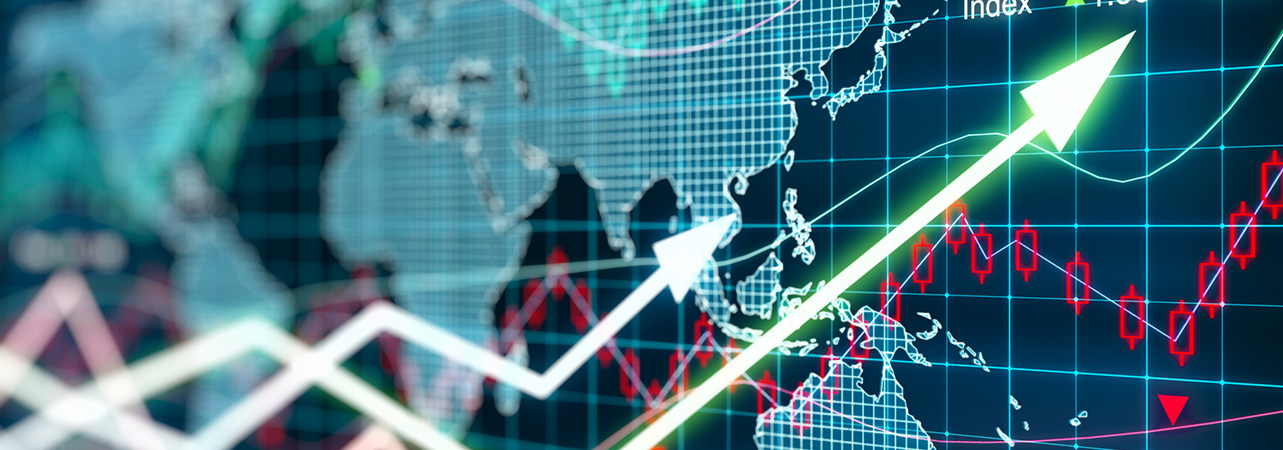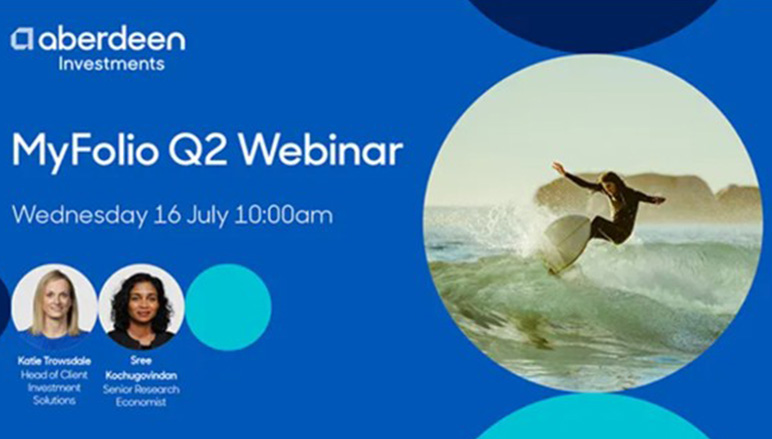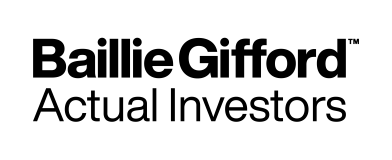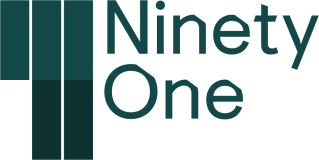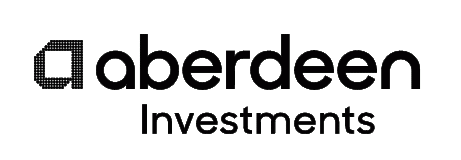SPONSORED CONTENT
All investment strategies have the potential for profit and loss, capital is at risk.
“The philosophy stays the same, but the process should evolve,” says Alasdair McHugh, client services director on the Baillie Gifford Sustainable Growth Fund. This mantra has informed the fund’s recent makeover, designed to ensure that the fund keeps pace with the fast-moving sustainability sector.
The fund was first launched in 2015. It pioneered sustainable investing at the time as the first of the Baillie Gifford funds to adopt a full ESG mandate.
The underlying philosophy of the fund remains unchanged – a focus on long-term growth alongside sustainability. However, how it looks to achieve this has shifted. It changed its name in March of this year and tweaked its process.
First, there is now a dedicated team in charge. Toby Ross moved over from the Global Income Growth Team and Katherine Davidson joined him from Schroders in late 2022. Both had an established track record in building sustainability strategies – Ross on the Baillie Gifford Responsible Global Equity Income Strategy and Davidson on the Schroder Global Sustainable Growth Fund.
The fund will still harness ideas from around the firm but in a more centralised and systematic way. The holding range will drop from 70-100 to 55-80.
McHugh says,
We used to have a specialist investor embedded within each regional equities team. They worked in a decentralised way and would generate ideas and bring them forward for portfolio construction. Following robust debate, stock picking was done on a ‘no veto’ basis, meaning if the proposer still thought the investment case held, the stock would be bought.
At the beginning of this year, we established a new central desk within this structure. We still have that outer link to harness the team’s expertise, using ‘regional scouts’.
A real strength of the previous process was eclectic idea generation, so we’re just elevating the bar and trying to ensure the process is more consistent.”
He says that Ross and Davidson are also trying to steer the portfolio to more “enduring growth” businesses that “make their own weather”, ie they can continue to grow despite the external environment. This should make the fund more resilient in challenging markets.
Growth compass
To find these companies, the group uses its ‘sustainable growth compass’. This is a framework of nine questions that sets out the qualities they seek in individual companies.
McHugh says: “There are several questions on the growth angle – whether a company can deliver 10 per cent per annum compounded for a decade - and the resilience of the business.
That steers us to companies that are in control of their own destinies. We are trying to determine whether the company is well-placed to be resilient in a range of economic and market environments.”
This is followed by a series of questions on a company’s sustainability, centred on four key criteria – products, practices, ambition and trust – which the team assigns a score for. In doing this, the team seeks to understand how companies are making a difference to the big societal challenges of people, the planet or prosperity.
Within the portfolio, ‘people’ includes a range of healthcare and biotech names, including Moderna, that can show a clear impact from their products. ‘Planet’ is holdings such as Tesla or L’Oréal that create environmental change through products and practices. ‘Prosperity’ is about facilitating the betterment of society through growth.
“For example, we hold Amazon, which may not be an obvious choice. However, Amazon Web Services is lowering barriers to entrepreneurship and allowing small businesses to compete with large ones. This brings huge benefits in terms of competition and choice, as well as building wealth and reducing inequalities.”
‘What’ and ‘how’
The fund differs from the group’s Positive Change Fund in having a single mandate – financial – rather than a dual mandate – financial and impact. That, says McHugh, allows it some flexibility and nuance:
Companies can have a measurable societal benefit through what they do – ie their products and services. This could be Tesla’s electric vehicles, the green hydrogen of ITM Power, or Advanced Drainage Systems’ recycled plastic pipes.
However, we also try to think about how companies can make a difference in how they conduct themselves, ie their business practices. This bit is less well-covered because it is hard to analyse, but we think it is equally valuable.
He gives the example of French cosmetics giant L’Oréal. It is not a natural holding for a sustainability fund, but it’s a large multinational company whose practices can significantly affect the sector.
McHugh says: “The company is showing real leadership. Some companies are not yet disclosing scope 1 and 2 emissions, but the L’Oréal management team is thinking hard about its scope 3 emissions.
Scope 3 means that if someone is in the shower, washing with one of L’Oreal’s products, the energy used to heat the shower contributes to their broader emissions profile. The group is funding a small startup that specialises in water-saving shower heads. It’s also developing fast-rinse shampoos so people spend less time in the shower. This is real innovation to try and make a difference.”
Japanese company Recruit is another holding. It owns the recruitment site Indeed, which is improving the transparency of labour markets and has been particularly focused on reducing workplace discrimination and including marginalised communities.
McHugh says: “In the US, around 30 per cent of the population has a criminal record – 27 per cent in the UK. It tends to be the first question asked on an employment application form, so it automatically excludes certain people. Taking a more nuanced approach means it is possible to see reductions of reoffence rates as ex-offenders find gainful employment.”
McHugh says the fund’s sustainability approach is much more sophisticated than a purely exclusionary approach. He points out that excluding the six main sin sectors only removes around 350 stocks from a universe of 9,000. It also doesn’t exclude many of the more difficult stocks and won’t capture problems such as a poor working culture or aggressive sales tactics.
Engagement
The team also has a strong engagement programme: “There’s no such thing as the perfect company. We want to iron out the wrinkles in the companies we invest in,” he says.
The team recently engaged with Starbucks on its attitude towards unionisation. “We hadn’t expected this because Starbucks generally treats its employees very well and has strong practices. However, ultimately, the group admitted it had managed early communications badly, and we were reassured by its approach.”
McHugh believes that sustainability and growth are mutually reinforcing. Those companies that can grow 10 per cent or more year after year are in the best position to have a positive effect on society. While those that are having a beneficial impact on society are best placed to grow: “This is the virtuous circle we want to harness,” he says.
Risk factors and important information
This article does not constitute, and is not subject to the protections afforded to, independent research. Baillie Gifford and its staff may have dealt in the investments concerned. The views expressed are not statements of fact and should not be considered as advice or a recommendation to buy, sell or hold a particular investment.
The Fund’s share price can be volatile due to movements in the prices of the underlying holdings and the basis on which the Fund is priced. Investments with exposure to overseas securities can be affected by changing stock market conditions and currency exchange rates.
Baillie Gifford & Co Limited is authorised and regulated by the Financial Conduct Authority. Baillie Gifford & Co Limited is an Authorised Corporate Director of OEICs. All data is sourced from Baillie Gifford & Co unless otherwise stated.
Past performance is not a guide to future returns.
INVESTOR BIOGRAPHY
Alasdair McHugh
Client Service Director
Alasdair is an Investment Specialist on our Sustainable Growth strategy and a founding member of the team. Alasdair joined Baillie Gifford in 2008 as an Investment Operations Graduate. Since joining the firm, he has also been involved with our Environmental Sustainability Group, which looks at the firm’s own climate credentials. Alasdair previously trained as a Chartered Management Accountant after graduating from The University of Dundee in 2006.


